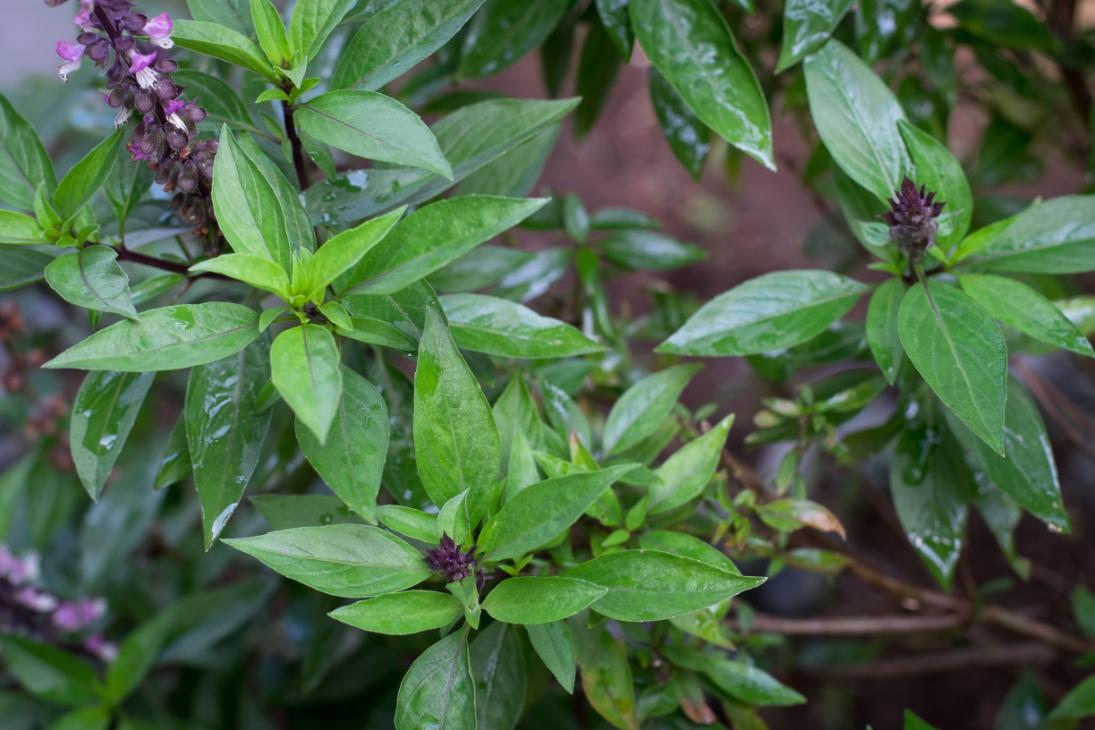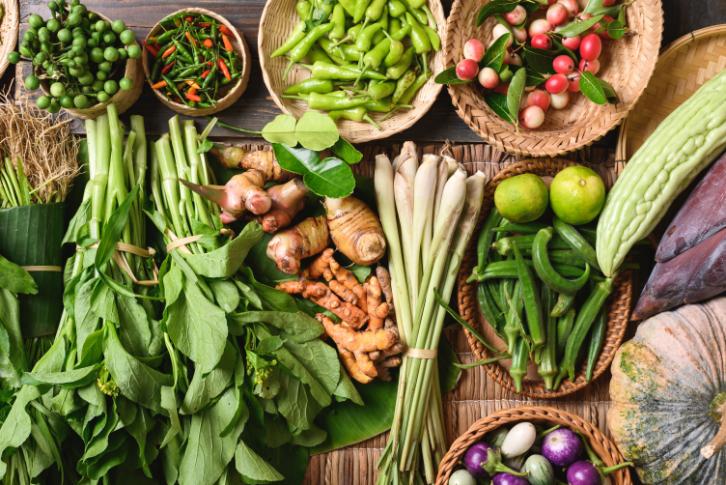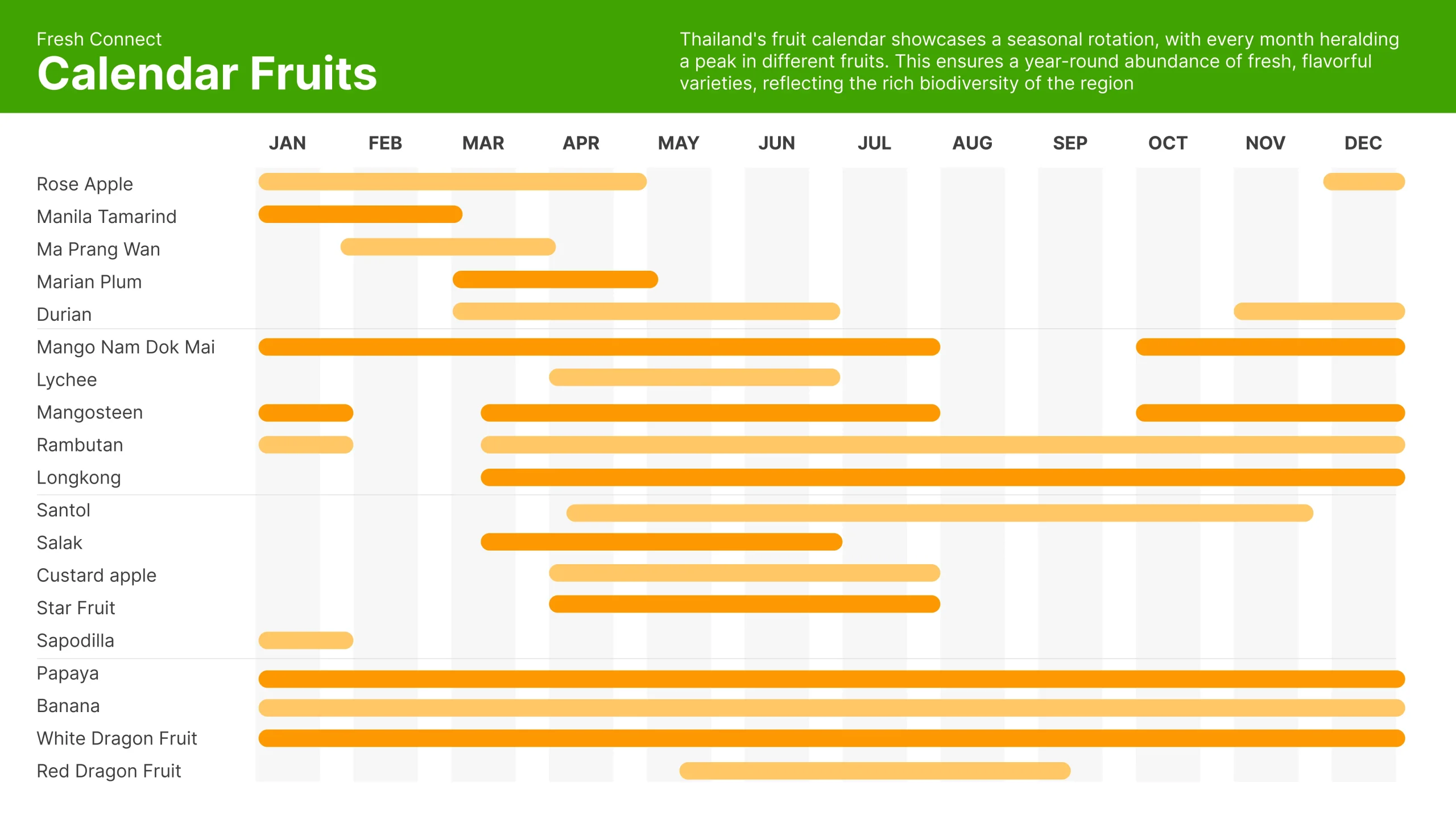Connoisseurs of Thai food can immediately tell if restaurants are serving dishes cooked with authentic Thai ingredients or are instead using local substitutes. Thai basils, with their distinctive anise-licorice and spicy-mint undertones, are one such type of ingredients whose presence on a plate are a clear indicator that a meal is going to be superb. When overseas Thai restaurants and food manufacturers need genuine Thai basil, sourcing from Thailand delivers the authenticity customers expect.
In other words, getting authentic Thai basil from Thailand makes the difference between average dishes and exceptional ones.
Thailand’s ideal growing conditions and traditional cultivation methods produce herbs with unmatched intensity and complexity, and smart buyers understand that sourcing location directly impacts both flavor quality and customer satisfaction.
What is Thai Basil?
Thai basil, or โหระพา (horapha), has shiny green, slightly serrated, narrow leaves with a sweet, anise-like scent and hints of licorice, along with a slight spiciness that is lacking in sweet basil. This herb delivers a complex flavor that sets it apart from every other basil variety. Thai basil also has a purple stem, and like other plants in the mint family, the stem is square. These visual markers help identify authentic Thai basil, but its taste reveals the real distinction.

How Thai Basil Differs from Thai Holy Basil and Western Basil
Confusion among Thai basils often stems from similar names with different products.
Holy basil, or กะเพรา (gaprao) has a peppery and spicy flavor with a slightly bitter aftertaste. In addition, its flavor profile has notes of cloves, mint, and pepper. Thai holy basil serves entirely different culinary purposes despite name similarities – notably, its signature dish pad gaprao is a spicy minced pork and Thai holy basil leaves stir-fry that is a staple food in Thailand.
Western sweet basil lacks the intensity and distinctive anise characteristics that make Thai basil irreplaceable in authentic Southeast Asian cooking. Unfortunately, you do see some restaurants try and use western basil in pad gaprao, much to the customer’s dissatisfaction.
Understanding these differences prevents costly sourcing mistakes that compromise dish authenticity and customer expectations.
Where to Buy Fresh Thai Basil?
Finding reliable suppliers in Thailand can be a multi-layered process where a focus on quality control separates profitable imports from costly disasters. Temperature fluctuations destroy delicate herbs faster than any other fresh produce category, so proper harvesting timing, immediate cooling, and controlled storage determine whether your Thai basil arrives fresh or compromised.
Experienced importers partner with trusted suppliers who understand these requirements. Fresh Point combines decades of Thai agriculture expertise with modern cold chain technology, and our quality assurance processes ensure consistent results that protect your investment and business reputation.
How to Import Thai Basils: Three Critical Areas to Focus On
Customs Requirements
Be advised, customs clearance for fresh herbs demands precise paperwork. Phytosanitary certificates, import permits, and proper classification codes prevent delays that kill product quality; one missing document can strand your shipment while competitors serve your customers.
Documentation Standards
Beyond customs, successful imports need proper invoicing, insurance certificates, and transport documentation. Documentation mistakes compound quickly, and remember that as an importer you’re working a freshness timeline. Consider maintaining checklists and establishing relationships with customs brokers who understand fresh herb requirements.
Shipping Quality Control
As mentioned, temperature management starts at harvest and continues to your warehouse. Even minor temperature fluctuations accelerate ripening, leading to reduced shelf life and potential product rejection at destination. Proper packaging also protects against humidity changes and physical damage during transport.
As for shipping from Thailand, air freight reduces transit time but significantly increases costs. Sea freight offers economy but requires longer cold chain management. Product shelf life and market pricing will determine the right choice.
Why Partner with Trusted Thai Basil Suppliers
It’s simple – quality suppliers prevent expensive mistakes through proven systems and relationships. Fresh Point’s established network ensures consistent supply even during challenging seasons, and our expertise extends beyond individual products to complete supply chain solutions.

Professional herb importing requires specialized knowledge, and when shipping vegetables from Thailand, remember that temperature control, documentation accuracy, and supplier reliability determine success or failure during import.
Fresh Point delivers the consistency that builds profitable import operations, so contact Fresh Point today to discuss your Thai tropical vegetables import needs and learn how our expertise ensures your customers’ satisfaction.

